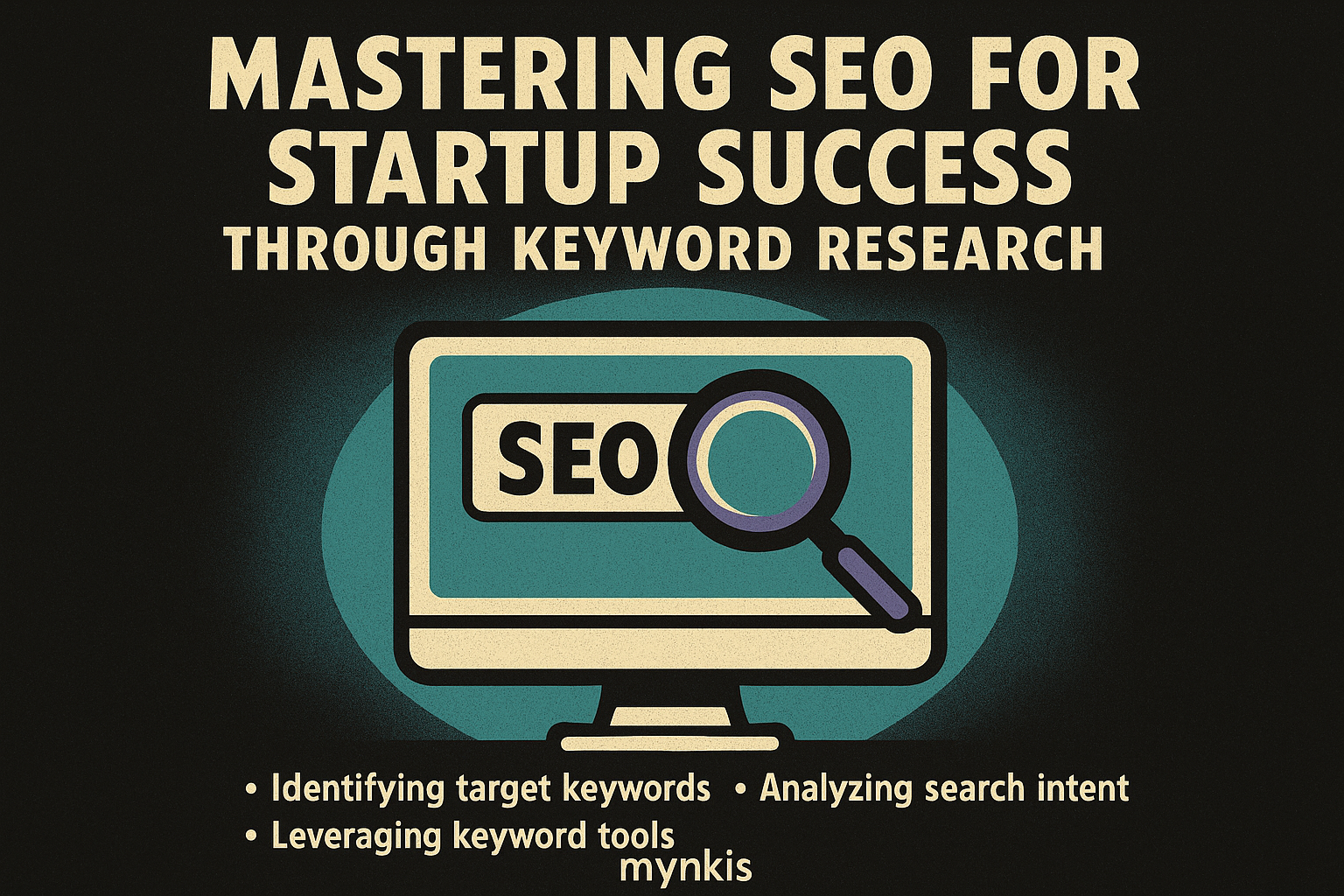Schedule a Demo
In my experience, guiding startups towards explosive growth often hinges on understanding and leveraging the subtle art of keyword research. Keyword optimization not only ensures your startup's visibility in the vast digital landscape but also fine-tunes the journey from an idea to a recognized brand. With the right tools and a strategy, a founder can significantly enhance their ability to iterate rapidly on a Minimum Viable Product (MVP) and establish a scalable tech infrastructure.
Keyword research is foundational in SEO because it allows businesses to tap into the very terms their potential customers are searching for. I've seen the impact firsthand; by aligning an MVP website's content with those terms, startups are better positioned to rank higher in search engine results, drawing more organic traffic and potential customers into their growth funnel.
Let's dive into some powerful tools that can help you get started on your journey. Google Keyword Planner stands as a cornerstone for many in the SEO world. While it's basic, it's also free and integrated into Google Ads. It offers insights into search volumes, competition levels, and suggested bid prices for Google Ads campaigns. What I find invaluable for startups is its ability to uncover related keywords and trends, providing a broad view of the market's language and interests.
Stepping up in sophistication, SEMrush and Ahrefs offer in-depth keyword analysis for a price, but their detail-oriented reports are game-changers. SEMrush, for instance, excels at competitive analysis, showing you which keywords are working for your competitors. I've advised clients to use these insights to pinpoint gaps in their market and position their MVP sites to capitalize on missed opportunities by their competitors.
The true power of these tools lies in their ability to uncover long-tail keywords. These are longer and more specific keyword phrases that visitors are more likely to use when they're closer to a point-of-purchase or when using voice search. From my work with founders, I've noted that niche targeting via long-tail keywords can quickly boost an MVP's search rankings and drive qualified traffic that's more aligned with your business's core offerings.
To leverage these tools effectively, one must comprehend not only what keywords to target but how they integrate into a broader content marketing strategy. I encourage the founders I work with to consider the user intent behind the searches. Are users seeking information, looking to make a purchase, or simply navigating to a known destination? Crafting content that fulfills these intents can amplify the power of your keyword selections exponentially.
Let's discuss another tool that has crept up in reputation, Moz's Keyword Explorer. It combines simplicity with depth, providing startup founders with insights into keyword difficulty, SERP features, and priority scores to guide their SEO strategy. For founders looking to keep SEO in-house during the early stages, this tool offers a straightforward yet potent approach to finding the right keywords to target.
Perhaps one of the most overlooked aspects of keyword research for startups is the mobile-first approach. As more users search on mobile devices, integrating this behavior into your keyword strategy becomes pivotal. From clients who pivoted to a mobile-first SEO strategy, I've seen improved user engagement and conversion rates. Tools like Google's Mobile-Friendly Test and SEMrush's Mobile SEO features are indispensable for understanding how your site fares on mobile and how to refine it accordingly.
Of course, keyword tools are one piece of the puzzle. The entrepreneurial journey demands agility and adaptability in your tech infrastructure. As you scale from an MVP, integrating enterprise web solutions that support these strategies is essential. Keeping the backbone of your website scalable and flexible enough to incorporate shifting SEO trends and capabilities is a strategy that I find indispensable.
Building on the notion of adaptability, keyword research is not a set-and-forget tactic. The digital landscape shifts continuously, and so must your strategy. Startups, especially, need to keep their pulse on new trends and altering customer behavior, maybe iterating their offerings in real-time. I've always advocated for regular revisits to the keywords, assessing their performance and the evolving market landscape.
Researching industry-specific terms can offer startups a competitive edge. By delving into niche markets, founders can uncover hidden opportunities for growth. I guide my clients to look into sub-niches related to their field, perhaps with tools like AnswerThePublic, which unveils the questions people are asking about a particular topic. This not only helps refine keywords but also directly informs content creation for the MVP, giving it a head start in user relevance.
Throughout all of this, never underestimate the value of analytics. For a startup, I recommend strongly considering the integration of tools like Google Analytics and Search Console. They give you raw, unfiltered insights into how users interact with your site and which keywords are bringing traffic. These analytics can directly guide your iterative development process, further refining your custom software development for maximum impact.
To round off, a practical example from my experience in software development might add concrete value. A client running a startup focused on eco-friendly products used keyword research to understand their audience's pain points, like 'sustainable packaging solutions'. By crafting an MVP site incorporating these keywords, not only did they rapidly iterate their product line based on consumer interest, but they also positioned their tech infrastructure for future scalability, especially crucial when their brand started to gain traction.
Keyword research is more than a technical task; it's a lens into understanding and meeting your market where they stand. For founders needing to pivot quickly and build a scalable tech infrastructure, mastering SEO and effectively using keyword tools is not just smart strategy—it's a strategic imperative that can define the trajectory of their enterprise.
